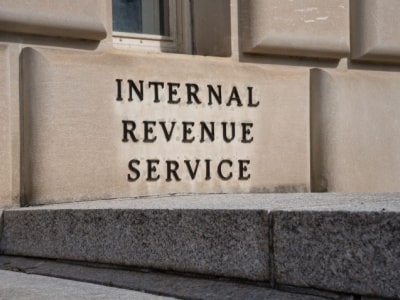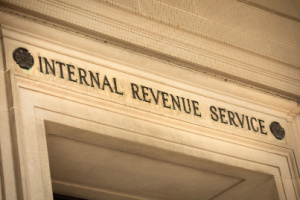Recent Blog Posts
Trump and Taxes - What to Expect
 In 2017, the Tax Cuts and Jobs Act (TCJA) was introduced. This legislation made significant changes to the tax code, and its provisions affected taxpayers in almost every bracket of society. However, many of the changes enacted by the TCJA are set to expire at the end of 2025, and many people find themselves with anxiety in the face of possible tax increases for the following year. This article will walk through the existing provisions that face possible changes during the Trump 2025 presidency, as well as other proposed initiatives that taxpayers should keep an eye on.
In 2017, the Tax Cuts and Jobs Act (TCJA) was introduced. This legislation made significant changes to the tax code, and its provisions affected taxpayers in almost every bracket of society. However, many of the changes enacted by the TCJA are set to expire at the end of 2025, and many people find themselves with anxiety in the face of possible tax increases for the following year. This article will walk through the existing provisions that face possible changes during the Trump 2025 presidency, as well as other proposed initiatives that taxpayers should keep an eye on.
Tax brackets and standard deductions
One of the most discussed changes made to the tax code through the TCJA was the lowering of rates for almost every tax bracket, with reductions ranging from 2% to 4% for different brackets of income. A full table with these percentages can be found in the Tax Policy Center’s website, here.
IRS Reduces Unannounced Visits to Avoid Scams and Protect Agents
 When taxpayers fail to pay taxes or file tax returns, revenue officers of the Internal Revenue Service (IRS), can show up, unannounced, to homes and businesses to collect the unpaid taxes and unfiled tax returns. Tens of thousands of these unannounced visits occur each year, usually to collect debts of more than $10,000. On July 24, 2023, the IRS announced that the agency would lessen the number of these visits to protect the safety of revenue officers, work better with taxpayers, and address the risk of scammers pretending to be IRS employees. With this change, IRS agents will now conduct only a few hundred unannounced visits in rare circumstances, specifically where the IRS needs to seize assets or carry out summonses and subpoenas. Most unannounced visits will be replaced with mailed letters, known as a Letter 725-B, that provide taxpayers with the option to schedule a face-to-face meeting with an IRS officer. The agency can also issue penalties or liens on the property of taxpayers who fail to respond to IRS notices of unpaid taxes or unfiled returns.
When taxpayers fail to pay taxes or file tax returns, revenue officers of the Internal Revenue Service (IRS), can show up, unannounced, to homes and businesses to collect the unpaid taxes and unfiled tax returns. Tens of thousands of these unannounced visits occur each year, usually to collect debts of more than $10,000. On July 24, 2023, the IRS announced that the agency would lessen the number of these visits to protect the safety of revenue officers, work better with taxpayers, and address the risk of scammers pretending to be IRS employees. With this change, IRS agents will now conduct only a few hundred unannounced visits in rare circumstances, specifically where the IRS needs to seize assets or carry out summonses and subpoenas. Most unannounced visits will be replaced with mailed letters, known as a Letter 725-B, that provide taxpayers with the option to schedule a face-to-face meeting with an IRS officer. The agency can also issue penalties or liens on the property of taxpayers who fail to respond to IRS notices of unpaid taxes or unfiled returns.
Tax Season is here…How well do you really know your return preparer?
 Some of you might be considering hiring a tax professional, or maybe you already have an accountant you’ve worked with for many years. Either way, it is easy to assume that once you hire a return preparer and send her all our financial documents, you can fully cross out “FILE TAX RETURNS” off your to-do list. After all, that is the point of hiring a professional to do your taxes, right?
Some of you might be considering hiring a tax professional, or maybe you already have an accountant you’ve worked with for many years. Either way, it is easy to assume that once you hire a return preparer and send her all our financial documents, you can fully cross out “FILE TAX RETURNS” off your to-do list. After all, that is the point of hiring a professional to do your taxes, right?
Well, yes…and no.
The IRS has consistently maintained the position that taxpayers have a “nondelegable duty” to file tax returns. Court decisions in recent years have uniformly confirmed this position, that it is the taxpayer’s responsibility to ensure the tax returns are filed on time. In other words, if your preparer fails to timely file your return, even if for reasons completely attributable to the preparer, you will still be liable for any attendant penalties.
There are two primary civil penalties taxpayers can be liable for in these circumstances: failure-to-pay and failure-to-file. The failure-to-pay penalty applies if a taxpayer does not pay his or her taxes on time; it is calculated based on a (monthly accruing) percentage of the taxes not paid. The failure-to-file penalty applies if a taxpayer did not file the tax return by the due date, and it is also calculated based on a (monthly accruing) percentage of the net taxes not paid by the due date.
Facing an IRS Audit?
 The mere mention of an IRS audit is enough to send shivers down the spine of any taxpayer. However, with the right approach and expert guidance from a skilled tax attorney, this daunting process can be managed successfully. This post aims to demystify the IRS audit process and outline the strategic role a tax attorney plays in defending your interests.
The mere mention of an IRS audit is enough to send shivers down the spine of any taxpayer. However, with the right approach and expert guidance from a skilled tax attorney, this daunting process can be managed successfully. This post aims to demystify the IRS audit process and outline the strategic role a tax attorney plays in defending your interests.
Understanding IRS Audits
An IRS audit is a review of an individual's or organization's accounts and financial information to ensure information is reported accurately according to tax laws. Audits can be triggered by discrepancies in your tax return, random selection, or excessive deductions relative to your income. They come in three forms: Correspondence Audits (conducted by mail for minor issues), Office Audits (more in-depth, requiring a visit to an IRS office), and Field Audits (the most comprehensive, conducted at your place of business or home).
Initial Steps Upon Receiving an Audit Notice
First and foremost, don't panic. Read the notice carefully to understand what the IRS is questioning. Begin gathering all relevant financial documents, like receipts, bills, and income statements. It's crucial to understand your rights, including the right to representation and to question the IRS's findings.







